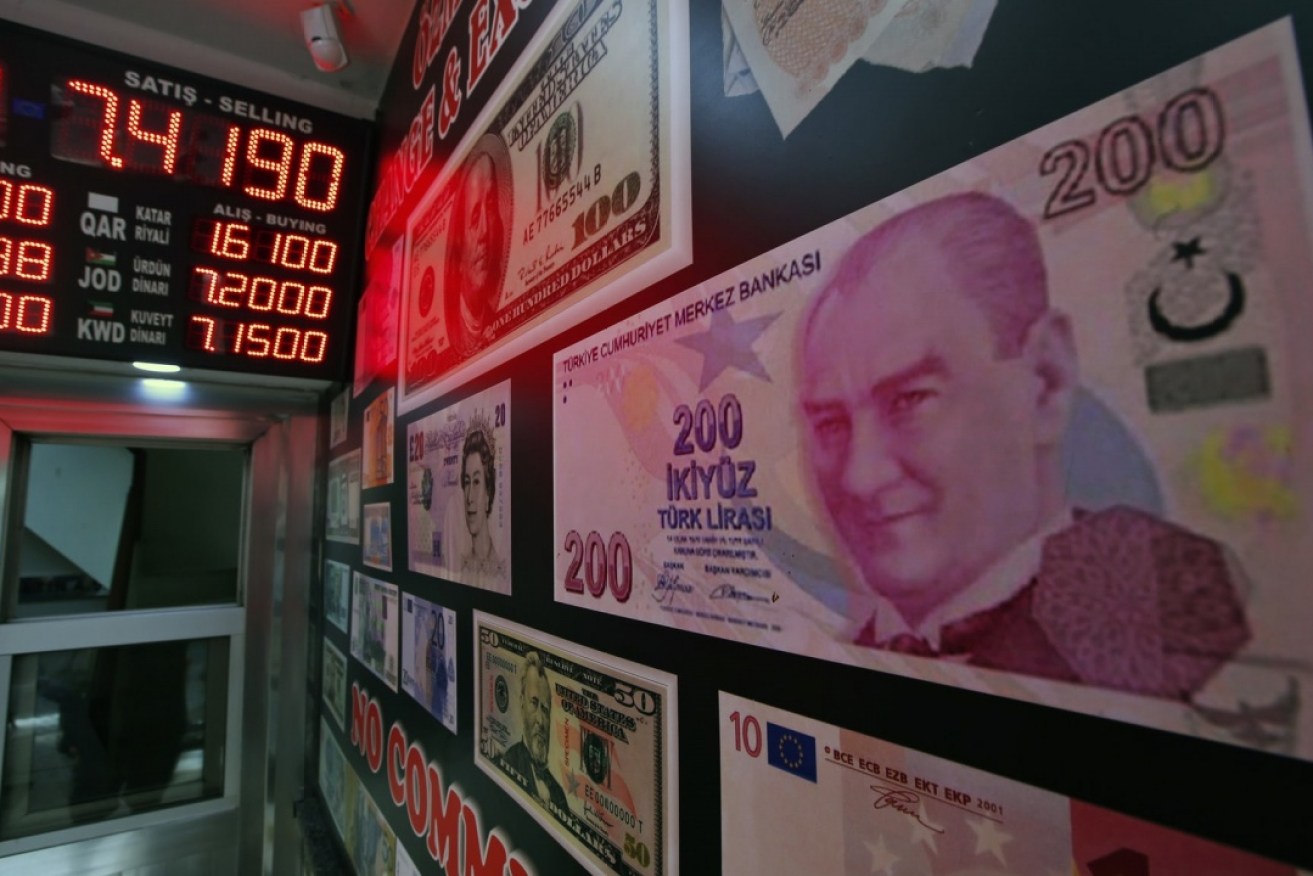Turkey hits back with US tariffs as currency crisis sparks global fears


Despite an easing in the Turkish currency plunge, fears remain for emerging markets.
Turkey has announced steep new retaliatory tariffs on some American imports as its escalating feud with US and resulting currency crisis threatens emerging markets around the world.
The Turkish government said it will impose new tariffs on US imports of rice, vehicles, alcohol, coal and cosmetics.
Tariffs on American cars were doubled to 120 per cent, while tariffs on alcoholic drinks soared to 140 per cent.
Ankara’s diplomatic spat with the US has seen the Turkish lira drop to record lows in recent weeks, having fallen some 42 per cent so far this year.
It recovered by four per cent to around 6.12 lira per dollar late Wednesday (AEST), after the government took steps to shore up the currency by reducing the daily limit in bank foreign currency swap transactions.
Also helping was an injection of US$15 billion ($21 billion) of direct investments from Qatar.
The agreement with Qatar announced Thursday (AEST) will help Turkey avoid having to ask the International Monetary Fund for an emergency funding.
Turkish officials said the Qatari money would be “channeled into Turkey’s financial markets and banks”, with the hope that the investment would be enough to head off a banking collapse.
However, fundamental concerns about the economy persist, and have deeply affected emerging markets.
The Indian rupee and Argentine peso touched their weakest levels against the US dollar earlier this week as investors went in search of more stable currencies.
Financial experts worry that the turmoil in Turkey will spread further in a similar pattern to emerging market meltdowns in Mexico in 1994 and Asia in 1997.
“The risk of contagion is pretty high,” Robert Subbaraman, an emerging market economist in Singapore, was quoted as saying by the New York Times on Thursday morning.
Mr Subbaraman pointed to South Africa, Hong Kong, the Philippines, Chile and Mexico as having the most vulnerable economies.
He warned the buildup in cheap dollar credit could ultimately threaten South Korea, Taiwan, Hong Kong, Singapore, Malaysia and even China.
Other analysts, however, are confident the major Asian economies are strong enough to withstand the turbulance.
“Turkey’s crisis raises concerns about more fragile emerging-market countries that similarly carry larger current account deficits like Brazil, South Africa, and Argentina,” Wells Fargo Investment Institute said in a report Wednesday.
Mr Erdogan has reacted to Turkey’s financial instability by blaming foreign powers, in particularly the US, which he says is waging an “economic war” as part of a plot to harm Turkey.
Washington has imposed financial sanctions on two Turkish ministers and doubled steel and aluminium tariffs on Turkey, as US President Donald Trump tries to secure the release of Andrew Brunson, a 50-year-old US pastor being tried in Turkey on espionage and terrorism-related charges.
A Turkish court on Wednesday rejected an appeal for Mr Brunson’s release from detention and for a travel ban against him to be lifted, the state-run Anadolu Agency reported.
A higher court is scheduled to review the appeal.
-with agencies








